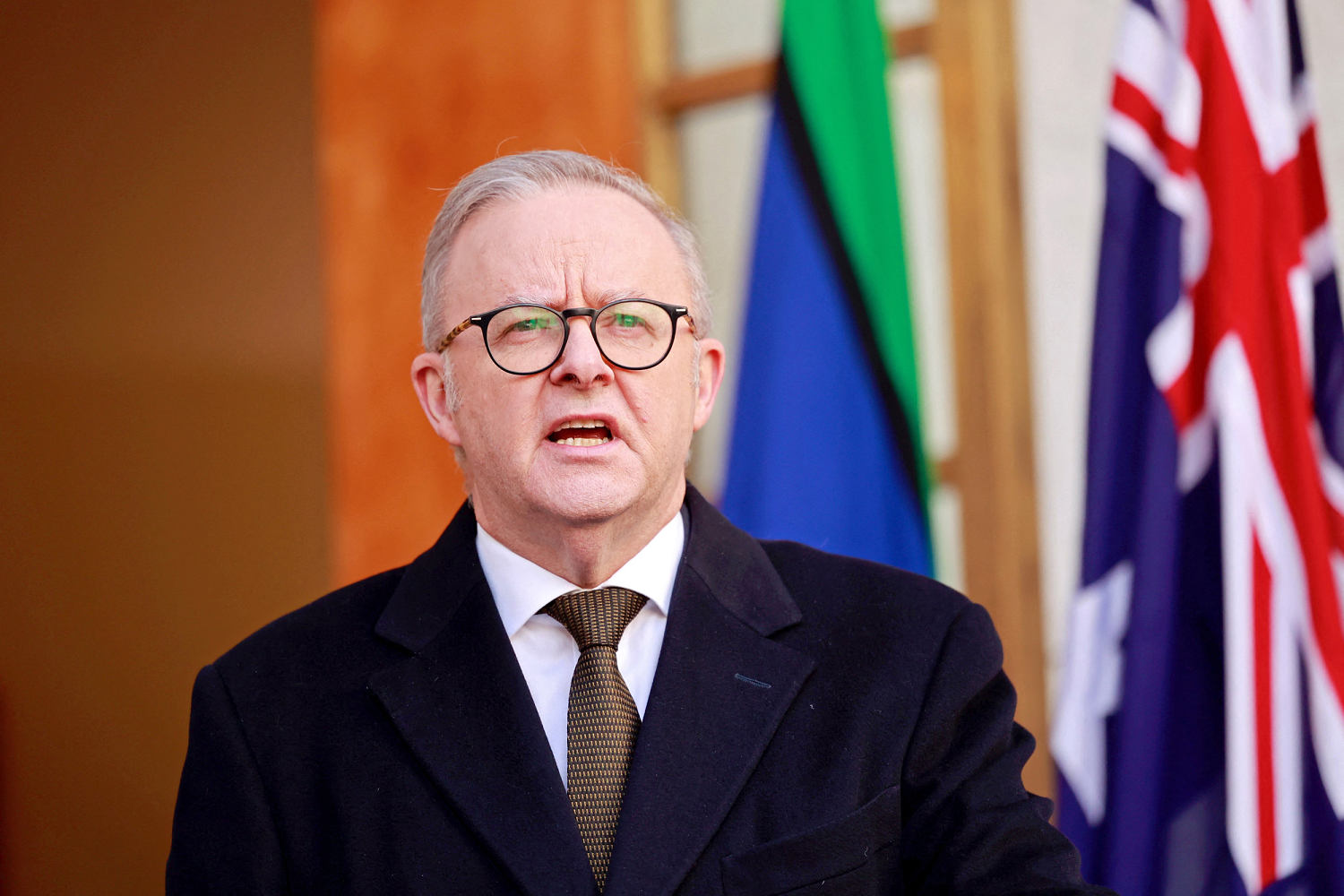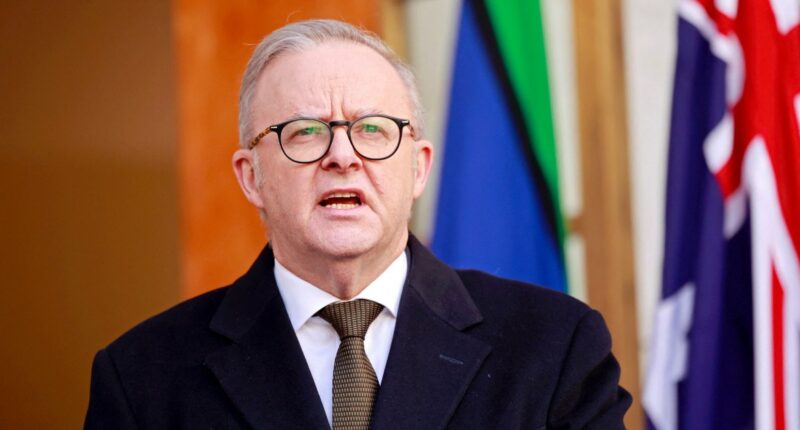Share this @internewscast.com

On Tuesday, Australia accused Iran of being behind at least two antisemitic incidents within its borders, leading to the expulsion of the Iranian ambassador from Canberra.
Prime Minister Anthony Albanese announced that Australia’s domestic intelligence agency had “credible intelligence” implicating Iran in the vandalism of Jewish locations in Melbourne and Sydney last year. This is part of what Albanese described as a troubling trend of antisemitic behavior in the country, escalating since the outbreak of the Israel-Hamas conflict nearly two years ago.
“These actions were extreme and hazardous, orchestrated by a foreign government on Australian soil,” Albanese told the press, indicating that Iran might have been involved in further assaults.
“These efforts sought to disrupt our community’s unity and create discord,” he said. “Such behavior is utterly intolerable, prompting the Australian government’s firm and decisive response.”
Besides expelling the Iranian ambassador, Australia has shut down its embassy in Iran, having already evacuated its diplomats, according to Albanese. Furthermore, he stated that the Islamic Revolutionary Guard Corps, Iran’s elite military unit loyal to the country’s supreme leader, would be designated as a terrorist group.
The Israeli Embassy in Australia welcomed the designation as a “strong and important move.”
“The Iranian regime poses a threat beyond just Jews or Israel; it jeopardizes the free world, including Australia,” declared the embassy in a statement on X.
Albanese said the Australian Security Intelligence Organization had assessed that Iran was behind last year’s Oct. 20 attack on Lewis’ Continental Kitchen in Sydney and Dec. 6 attack on the ass Israel Synagogue in Melbourne. The two arson attacks caused significant property damage, but no injuries were reported.
Australian intelligence official Mike Burgess said that while not all of the country’s antisemitic incidents are tied to Iran, authorities are investigating whether Tehran was involved in other cases.
No Iranian diplomats or embassy staff in Australia were involved in the attacks, he said.
This is the first time since World War II that Australia has expelled an ambassador, Foreign Minister Penny Wong said, adding that the country will maintain “some diplomatic lines” with Tehran to “advance the interests of Australians.”
Australia has struggled to address a surge in antisemitic attacks on homes, schools, synagogues and vehicles since the Israel-Hamas war began on Oct. 7, 2023, with a terrorist attack on Israel during which Hamas-led militants killed about 1,200 people and abducted 251 others.
The war has since killed more than 62,000 people in the Hamas-run Gaza Strip, according to the local health ministry, whose numbers are considered credible by the United Nations and other international experts.
Last week, the world’s leading authority on hunger declared there was a famine in Gaza City, where Israel is pushing ahead with a new military offensive. Israeli Prime Minister Benjamin Netanyahu rejected the report’s findings as a “lie” and said Israel “does not have a policy of starvation.”
The war has been deeply divisive in Australia, where thousands of people joined pro-Palestinian rallies across the country on Sunday.
Albanese, who said Netanyahu was “in denial” about the humanitarian crisis in Gaza, said this month that Australia would join a growing list of Western governments in recognizing a Palestinian state. Netanyahu responded by calling Albanese “a weak politician who betrayed Israel,” saying his political record had been “tarnished forever.”
Albanese played down Netanyahu’s remarks, saying he doesn’t “take these things personally.”











